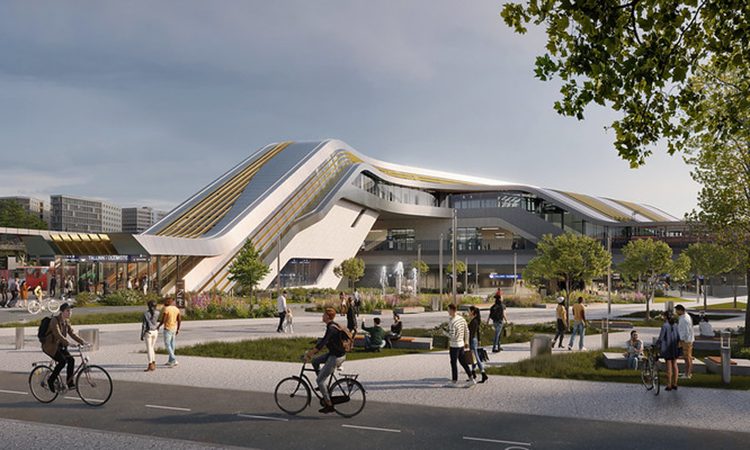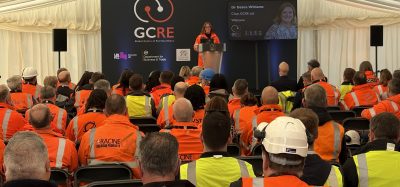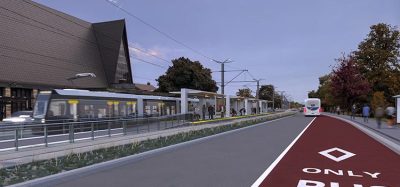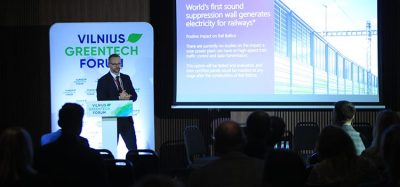Rail Baltic Estonia awards construction contract for Ülemiste terminal expansion
Posted: 2 August 2024 | Global Railway Review | No comments yet
Rail Baltic Estonia has awarded AS TREF Nord and ATEMO OÜ a €20.9 million contract for developing the northern outdoor areas of the Ülemiste terminal, including public spaces and a tramway.


Credit: Rail Baltica
Rail Baltic Estonia has announced that it has awarded a contract to the joint bidders AS TREF Nord and ATEMO OÜ for the development of the northern outdoor areas of the Rail Baltica Ülemiste international passenger terminal, known as Linda.
The contract, valued at 20.9 million euros (excluding VAT), is nearly 1.5 million euros below the estimated cost initially projected in the procurement process. It encompasses the design and construction of public spaces extending from the future Ülemiste terminal to Peterburi road. This marks the third phase of the station’s development, which includes ongoing work on railway tracks and the terminal’s ground floor.
The scope of the contract includes building the northern square of the terminal, as well as associated bicycle and pedestrian paths, roads, car parks and a bus station. In addition, the project will involve constructing a tramway and tram stop to facilitate access to the terminal. The northern outdoor areas will also feature a prospective station area for the Tallinn-Helsinki tunnel.
Rašid Pulatov, Technical Director of Rail Baltic Estonia, said: “The development of the Rail Baltica Ülemiste terminal is progressing according to the planned schedule, and the newly signed contract allows us to proceed rapidly with construction. By September at the latest, we will announce the construction tender for the outdoor areas south of the terminal and, most importantly, the terminal building itself.”
AS TREF Nord and ATEMO OÜ have been selected due to their relevant experience, including AS TREF Nord’s ongoing projects with Rail Baltic Estonia, which involves constructing eco ducts, road viaducts and a railway bridge. The contract’s 36-month duration begins with the design phase. The project is funded by the European Union and the Estonian state budget.








